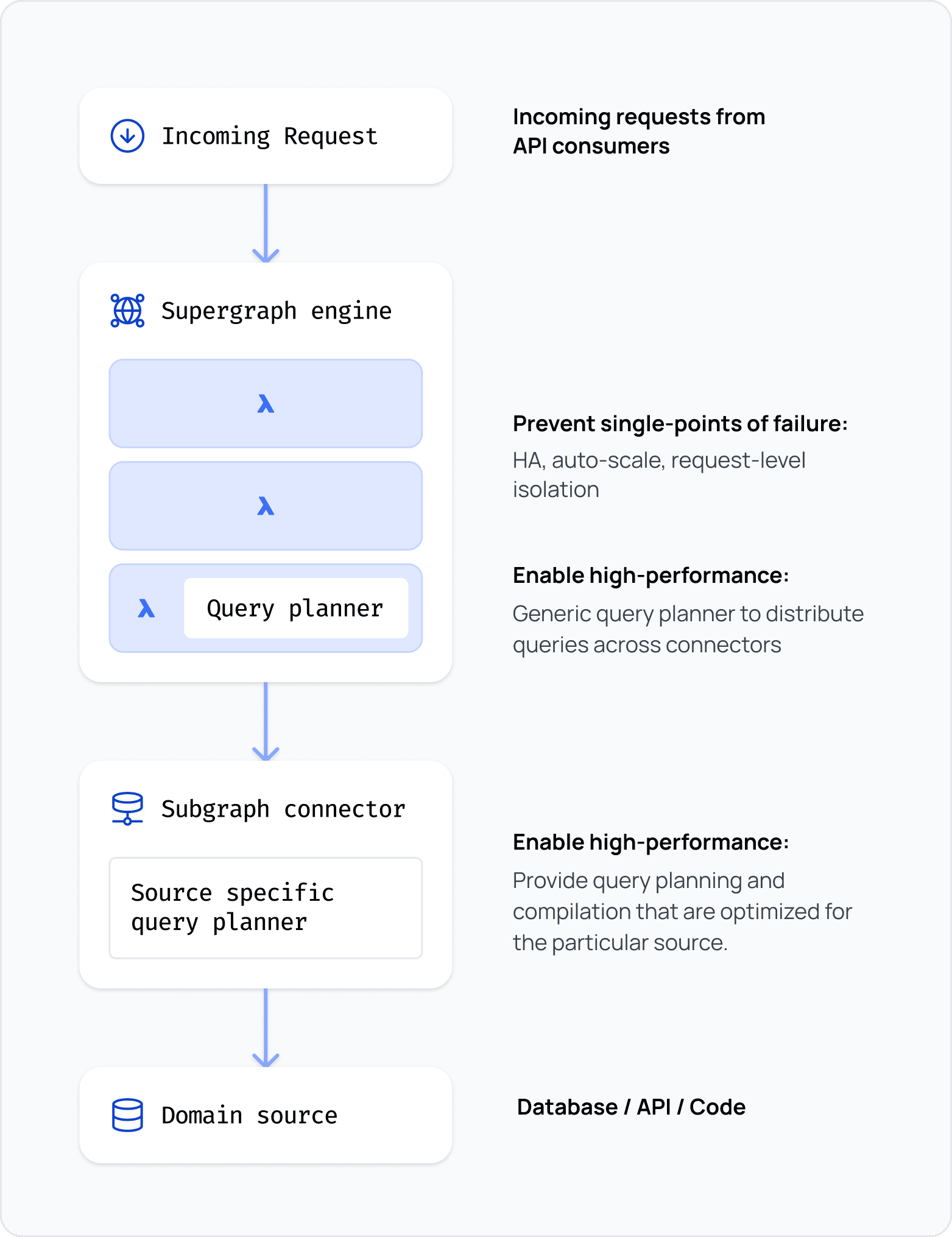Build high-quality GraphQL APIs on Timescale, instantly
GraphQL queries on Timescale
Leverage the full power of GraphQL API to interact with your Timescale database for all your read use cases.
Query exactly what you want from your Timescale hypertables, views, and functions.
Relationships and nesting
The GraphQL API on Timescale handles relationships between models, and queries can be nested to any depth if required.
Pagination
Easily manage large datasets with built-in pagination capabilities. Cursor-based, Relay-style, and offset-based pagination is supported natively.
Filtering
Filter query results on Timescale using advanced WHERE clauses and Boolean / logical operators like _and / _or, etc.
Sorting
Sort data based on multiple fields in Timescale hypertables and specify the sort direction (ascending or descending), making it easy to present your data.
Aggregation
Perform various aggregations to get detailed statistics about your Timescale data directly within your GraphQL queries. Leverage aggregate functions in Timescale like count, sum, min, max, avg, etc.
Vector search
Perform similarity / vector search using native queries.
query {
last_fifteen_mins_stats {
fifteen_min,
max_temp,
max_hum,
location {
id
name
}
}
}
High-performance GraphQL APIs, at scale
Hasura takes a domain-driven approach to GraphQL, where a GraphQL query is compiled to a query on a domain model (a database query or existing APIs) resulting in superior API performance.
Hasura leverages the goodness of Timescale and PostgreSQL to create efficient GraphQL queries.
Compile vs. resolve
Hasura avoids the GraphQL N+1 query problem by compiling a query instead of resolving. This compiler-based approach allows Hasura to form a single SQL query for a GraphQL query of any depth and avoids the N+1 problem in GraphQL.
JSON aggregations in Timescale
Hasura avoids the Cartesian product problem while fetching data from the underlying system by performing JSON aggregations in Timescale.
Predicate pushdown SQL to Timescale
Hasura filters data at the source with a predicate pushdown of SQL queries to Timescale.

Hasura’s GraphQL APIs are 3x faster than handwritten subgraphs on top of PostgreSQL
Learn more about how Hasura does high-performance domain-driven APIs.
Scaling Timescale with read replicas
Maximize your Timescale database performance and scalability with Hasura’s read replicas support.
Easily configure Timescale/PostgreSQL read replicas in Hasura to offload read-intensive operations, achieve seamless load balancing, and perform real-time analytics without impacting your primary database.
Configure routing, connection pooling, and load balancing.
Add caching to existing Timescale APIs for faster response times
Get up to 10x faster API performance on Timescale with end-to-end caching, scaling vertically and horizontally.
Hasura has metadata about the data models across data sources, and the authorization rules at the application level, which helps provide end-to-end caching.
Production-ready APIs on Timescale, from day one
Observability
Monitor for known issues by debugging and analyzing metrics from your Hasura instance.
API security
Secure your Timescale APIs with tools including allow list, multiple JWT secrets, API rate limits, and more.
Authorization
Make granular read and write access control easy to configure on your Timescale database with a built-in authorization engine.
Works with PostgreSQL flavors
Works with PostgreSQL flavors of your choice
Hasura is fully compatible with PostgreSQL standards. Choose the optimal PostgreSQL flavor for your use case. Use TimescaleDB for efficient time-series data handling and switch to vanilla PostgreSQL for other transactional workloads.

Frequently Asked Questions
Can’t find the answer you are looking for? Reach out to our team, and we can help you select the Hasura plan that’s right for you.
Contact Us
If you have any more questions about pricing, we’re here to help.
How to optimize GraphQL queries on Timescale?
What security measures are in place when using GraphQL with Timescale?
Can I combine data from Timescale and other sources in a single GraphQL query?
Can I use GraphQL with existing Timescale databases?
Contact Us
If you have any more questions about pricing, we’re here to help.




